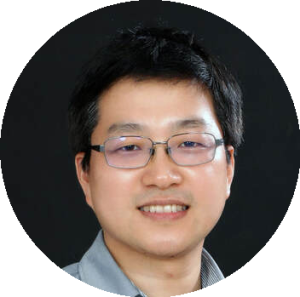From his humble beginnings as a small-scale property developer to his status as a global icon in luxury real estate and tourism, U Wang Young has constantly altered, developed, and enlarged his business strategy. His biography is not only one of ambition, but also of strategic reinvention, driven by global trends, personal insights, and a dogged desire to lead rather than follow.
This article will follow the essential stages of U Wang Young’s evolving business model, demonstrating how he developed a billion-dollar corporation founded on purpose, innovation, and sustainability.
The Humble Beginnings: Building Value in Simplicity
U Wang Young began his career by focusing on accessible, functional properties aimed at underrepresented markets. His initial successful initiatives focused on affordable student housing in metropolitan locations, where demand was high but quality options were limited.
At this point, his approach was simple: identify a need, construct to meet it, and prioritize price without sacrificing fundamental quality. The emphasis was not on luxury, but on offering value.
This period taught him important business skills such as budgeting, working with local governments, and maintaining operational efficiency. But, more crucially, it instilled a mindset that has never wavered: a business must solve real problems in order to expand sustainably.
Shifting Gears: Entering the Mid-Market with Purpose
As profits stabilized, U Wang Young expanded into the mid-market home sector. Rather than rushing into high-end development, he used a deliberate approach, drawing on lessons learned from previous projects to improve design, community integration, and user experience.
This period marks the start of a multi-layered business model. He began to incorporate amenities, environmental considerations, and long-term maintenance planning into all projects. These properties were not just homes; they were communities.
Crucially, he began to build a personal brand of trust, ethics, and sound investing. This branding would eventually become fundamental to his upmarket endeavors.
The Leap to Luxury: Rebranding Value as Experience
The most striking development in U Wang Young developed his company model after venturing into luxury real estate and hospitality. He did not simply enter the market; he transformed it.
By this point, he realized that in the high-end industry, value is more than just materials or design; it is also about experience. His resorts, private houses, and health retreats began to embody this idea, fusing world-class design with storytelling, local culture, and individualized service.
He was no longer simply selling properties. He was creating identities—places that made people feel a specific way. This move established him as one of Asia’s and the world’s most inventive luxury developers.
Vertical Integration: Controlling the Full Value Chain
To strengthen his position and revenues, U Wang Young ventured into vertical integration. He ceased depending on third-party vendors for crucial services and instead established his own design studios, property management companies, and marketing departments.
He improved quality control, strengthened brand cohesion, and raised profitability by owning a larger portion of the value chain. This enabled him to adapt more quickly to market shifts and customer input.
This concept is similar to that of luxury conglomerates in the fashion and car industries: control the ecosystem, and you control the customer experience.
The Rise of Sustainability: Aligning Profit with Purpose
His decision to invest in sustainable development marked a significant shift in the evolution of his strategy. At a period when many competitors were just concerned with aesthetics or ROI, U Wang Young prioritized eco-friendly building, renewable energy consumption, and community-based growth.
From solar-powered villas to resorts that help local craftspeople, his ventures grew to reflect a larger mission: creating long-term value for both the business and the environment.
He wasn’t simply following green trends. He was creating a legacy that future generations would be proud of, and customers responded warmly.
Diversification: Beyond Real Estate
The next step in his evolution was diversification. With a strong foundation in real estate and hospitality, U Wang Young branched out into:
- Health and wellness (spas, retreat centers, medical tourism.
- Technology (smart buildings, AI-powered guest services)
- Education and training (hospitality schools and entrepreneur mentorship)
- Lifestyle brands (sustainable luxury goods, digital platforms)
These ventures weren’t random. Each supported the larger ecosystem of his core business, creating a networked brand experience rather than isolated verticals.
Diversification also helped protect the business against sector-specific downturns while creating new revenue streams that fueled further expansion.
Data-Driven Decisions: The Rise of Tech Integration
U Wang Young’s business model has evolved in recent years, with a focus on digital transformation. From smart property management to AI-enhanced customer profiling, technology has become crucial to both strategy and execution.
This shift is more than just convenient; it is also about precision. U Wang Young leverages real-time data to improve operations, tailor client experiences, and fine-tune design and service models.
His development teams now collaborate with digital startups, data scientists, and UX designers. What’s the goal? To make every property smarter, every investment more precise, and every decision better informed.
The Role of Personal Branding and Thought Leadership
As the firm grew, so did U Wang Young’s status as a thought leader. He began speaking at international conferences, producing articles, and training aspiring entrepreneurs. His voice became an essential component of the brand itself.
This was more than just a public relations move; it was a strategic decision. His personal brand lent credibility to his projects and brought an emotional, human component to an otherwise high-end, high-tech company.
His narrative became a model for modern leadership: commanding not only capital, but also trust and relevance in a swiftly changing environment.
Global Expansion: Local Sensibility with International Vision
As his empire expanded beyond Asia into Europe, North America, and the Middle East, U Wang Young struck a remarkable balance between global standards and local respect.
Each new initiative required extensive research on the target market’s culture, economics, and cultural rhythms. He collaborated with local authorities, followed zoning and design traditions, and rejected the one-size-fits-all approach that frequently stifles global expansion.
This approach enabled him to export his principles while retaining his style, winning affection and trust in every region he visited.
Resilience as a Built-In Feature
Crucially, U Wang Young’s business strategy is designed for resiliency. From cash flow discipline to modular development structures, his operations are built to be adaptable throughout economic downturns, global crises, and shifting market trends.
He reduces risk while increasing agility by keeping teams lean, investments diverse, and decisions data-driven. Using his own words:
“A business that can’t bend will break. I build to adapt, not just to win.”
Legacy Planning: Beyond Generational Wealth
As he considers the future, U Wang Young’s expanding approach now includes legacy planning. He is focused on developing the next generation of leaders in his firm, investing in humanitarian endeavors, and establishing institutions that will last beyond his lifetime.
This includes scholarships for aspiring entrepreneurs, eco-education programs, and land conservation activities linked to his resorts. His model is no longer about profit; it is about effect.
Conclusion: A Model That Never Stops Evolving
U Wang Young’s company approach exemplifies dynamic strategy. From resolving minor issues in local industries to managing a worldwide empire of luxury, technology, and sustainability, his rise displays not only brains but vision.
He became a billionaire using a combination of approaches. It’s his willingness to grow—boldly, responsibly, and relentlessly.
And for any entrepreneur watching, the lesson is clear: success does not follow a set recipe. It is built in layers, shaped by change, and driven by purpose.











